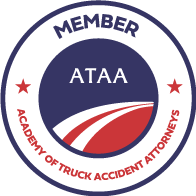By Tina Bellon
HARTFORD, Conn. (Reuters) – A lawyer for families who lost loved ones in the 2012 Sandy Hook school shooting told Connecticut’s highest court on Tuesday that Remington Outdoor Co. should be held responsible because its military-themed marketing was designed to appeal to young men like killer Adam Lanza. “They knew they were hitting their mark and Lanza was responding to their marketing,” said lawyer Joshua Koskoff. Lanza, 20, used a Remington AR-15 Bushmaster rifle, a semi-automatic civilian version of the U.S. military’s M-16, to kill 20 school children between the ages of 6 and 7, as well as six adult staff members, at Sandy Hook Elementary School in Newtown, Connecticut, on Dec. 14, 2012. He then killed himself.
Following the conclusion Tuesday’s arguments, the Connecticut Supreme Court will now decide whether the families of nine of the victims and one survivor can proceed with a trial seeking to hold Remington, along with a gun wholesaler and local retailer, responsible for the carnage based on its marketing. A representative for the court declined to say when it would rule.
The families are advancing a somewhat novel legal argument in hopes of overcoming a federal law enacted by U.S. Congress in 2005 to shield gun manufacturers from liability for how their products are used. Remington’s lawyer, James Vogts, told the Connecticut court that the families’ claims, first filed in 2014, are barred by the 2005 law. “What happened in the school that morning was horrific,” Vogts said. “But no matter how much we wished those children and teachers were still alive, the law needs to be applied.” A lower court judge agreed with the gun maker and dismissed the families’ lawsuit in 2016. But the Connecticut Supreme Court agreed to hear the case a week after the families filed their first appeal.
The packed courtroom in Hartford, Connecticut, included many of the victims’ family members. Ian Hockley, who lost his 6-year-old son, Dylan, in the shooting, told reporters after the proceeding that families were “running out of patience” over the gun maker’s ability to escape liability. “But we have not lost one ounce of confidence in the validity of our case,” he said.
The families claim Remington and the other defendants “extolled the militaristic and assaultive qualities” of the AR-15, advertising the rifle as “mission-adaptable” and “the ultimate combat weapons system” in a deliberate pitch to a demographic of young men fascinated by the military.
The families said Lanza was part of that demographic and cited media reports saying he previously expressed a desire to join the army. The rifle was bought by Lanza’s mother, whom he also killed, as a gift for him or for the two of them to share, the lawsuit claims. The families’ argument is based on the legal doctrine of negligent entrustment, in which a product is carelessly sold or given to a person at high risk of using it in a harmful way. Negligent entrustment is specifically excepted from the 2005 gun maker shield laws.
The argument has historically been used where someone lends a car to a high-risk driver who goes on to cause an accident. It has met with some success in lawsuits against gun shop owners, but legal experts said it has never been used before to target a manufacturer.
David Studdert, a Stanford law professor, said on Monday he thought negligent entrustment was a tough argument for the families to make because it has traditionally involved someone having direct knowledge that another person poses a risk.
If the Sandy Hook families are successful, Timothy Lytton, a law professor at Georgia State University, said on Monday he would expect the U.S. Supreme Court to take up the case.
(Reporting by Tina Bellon; Editing by Anthony Lin and Matthew Lewis)
Copyright 2017 Thomson Reuters.








